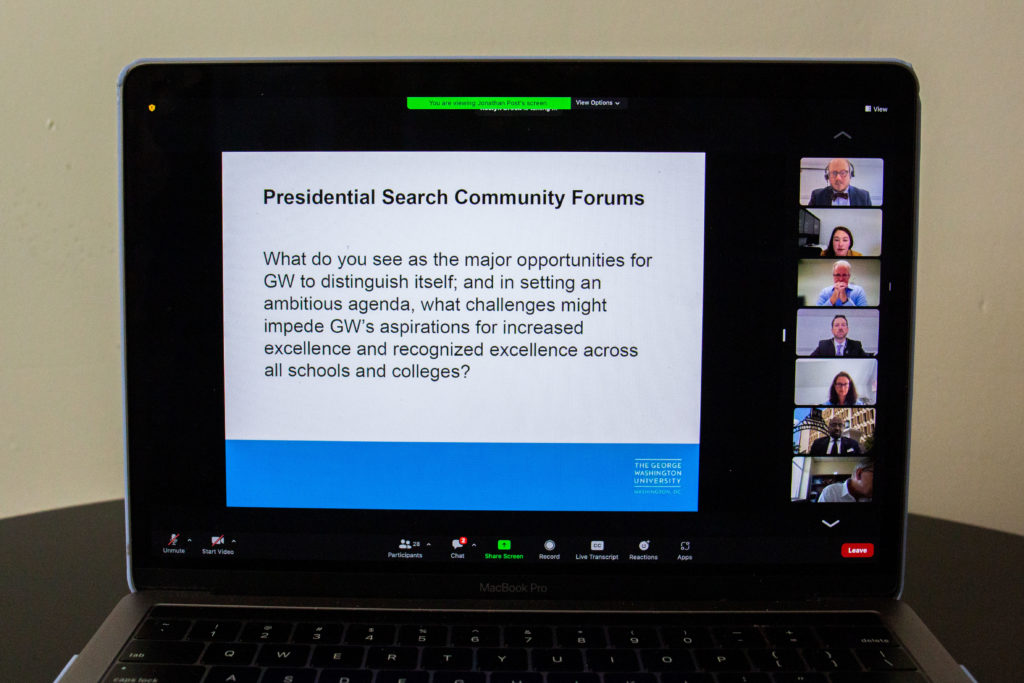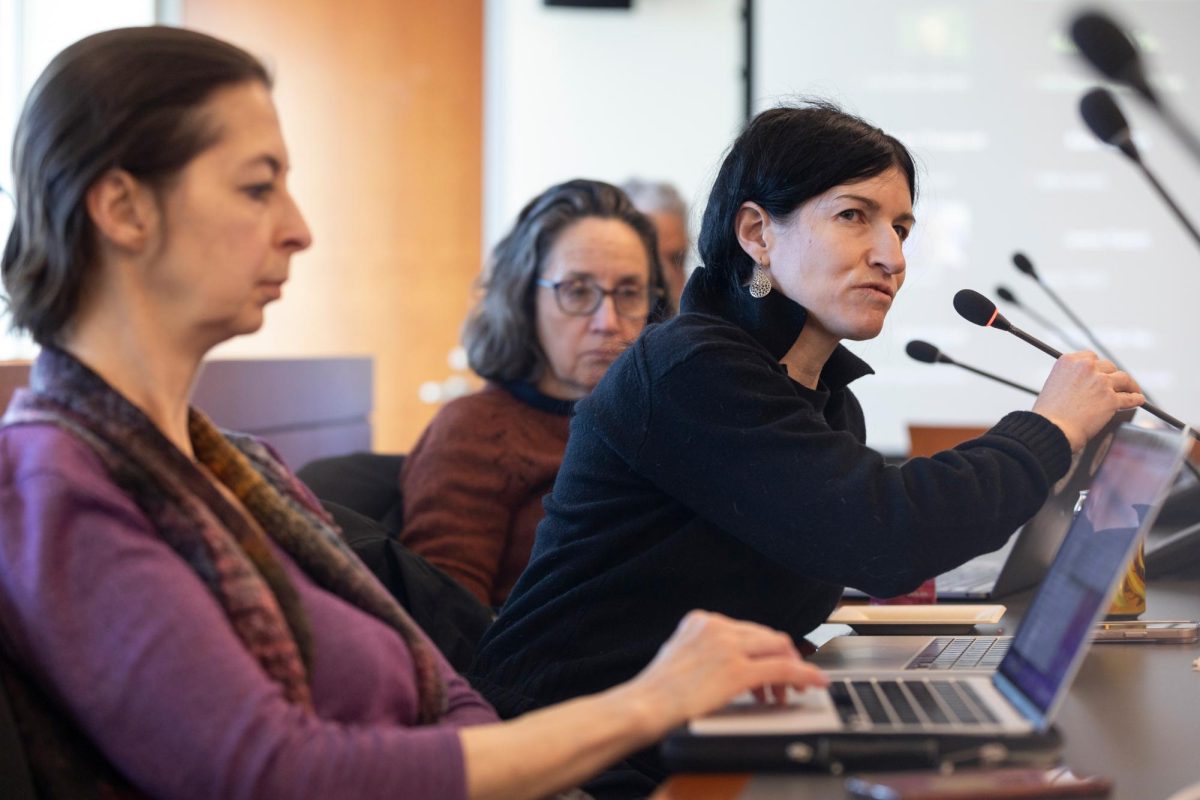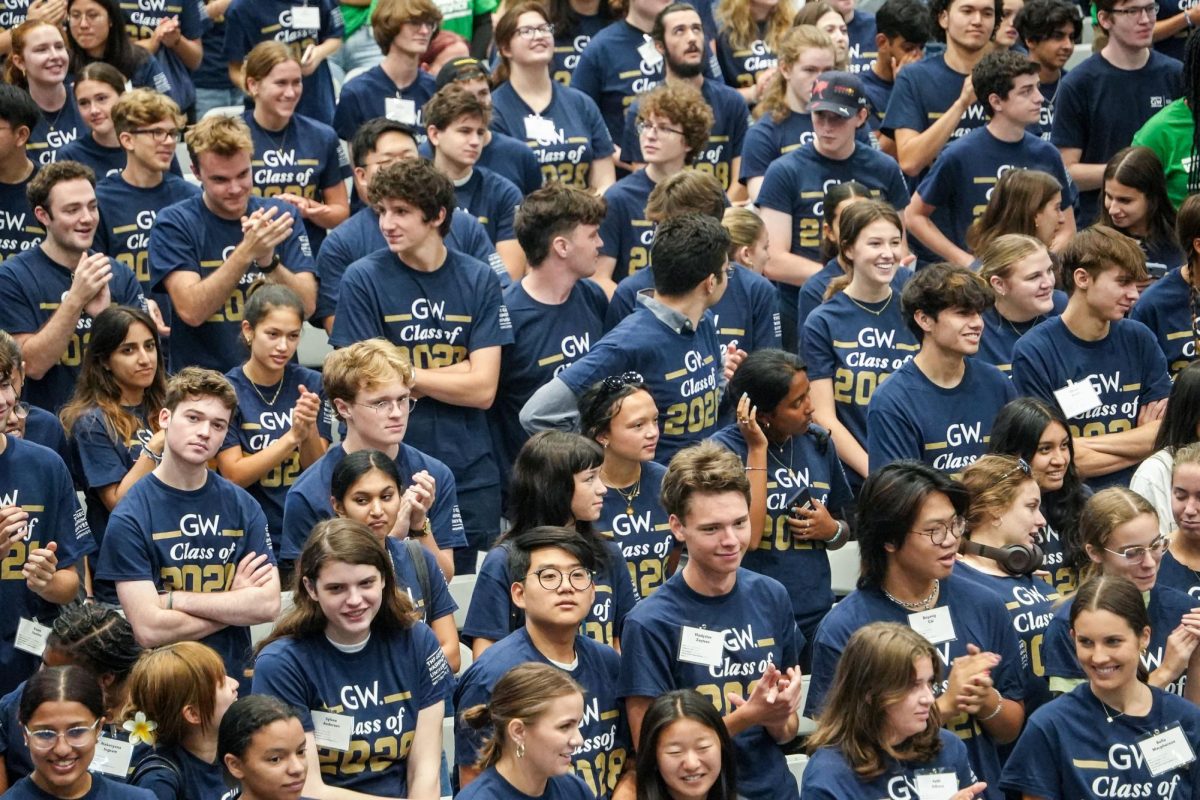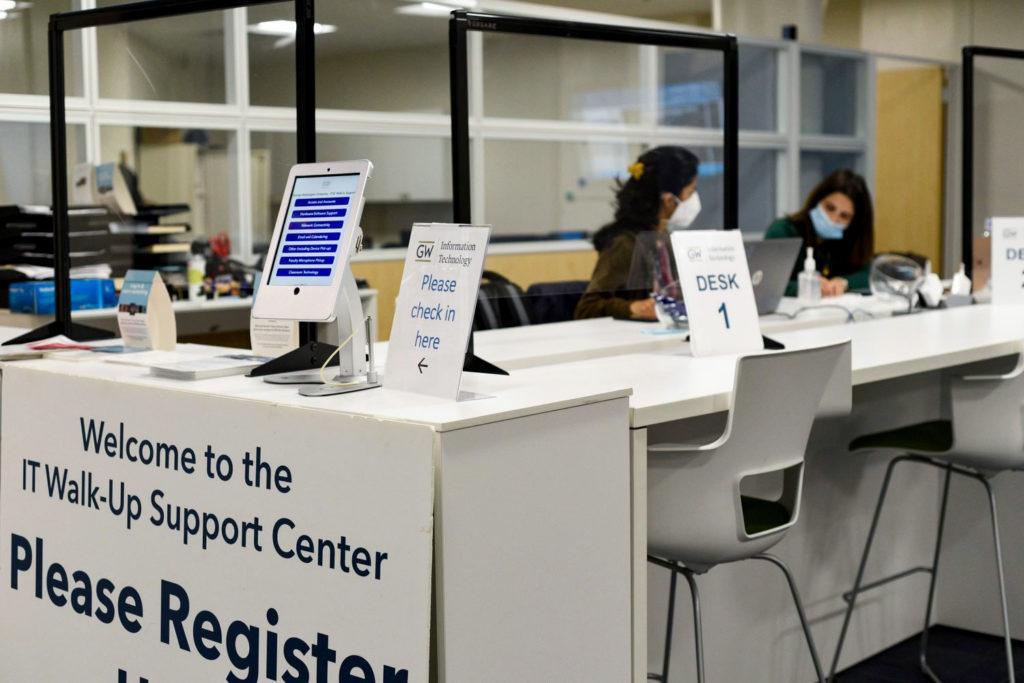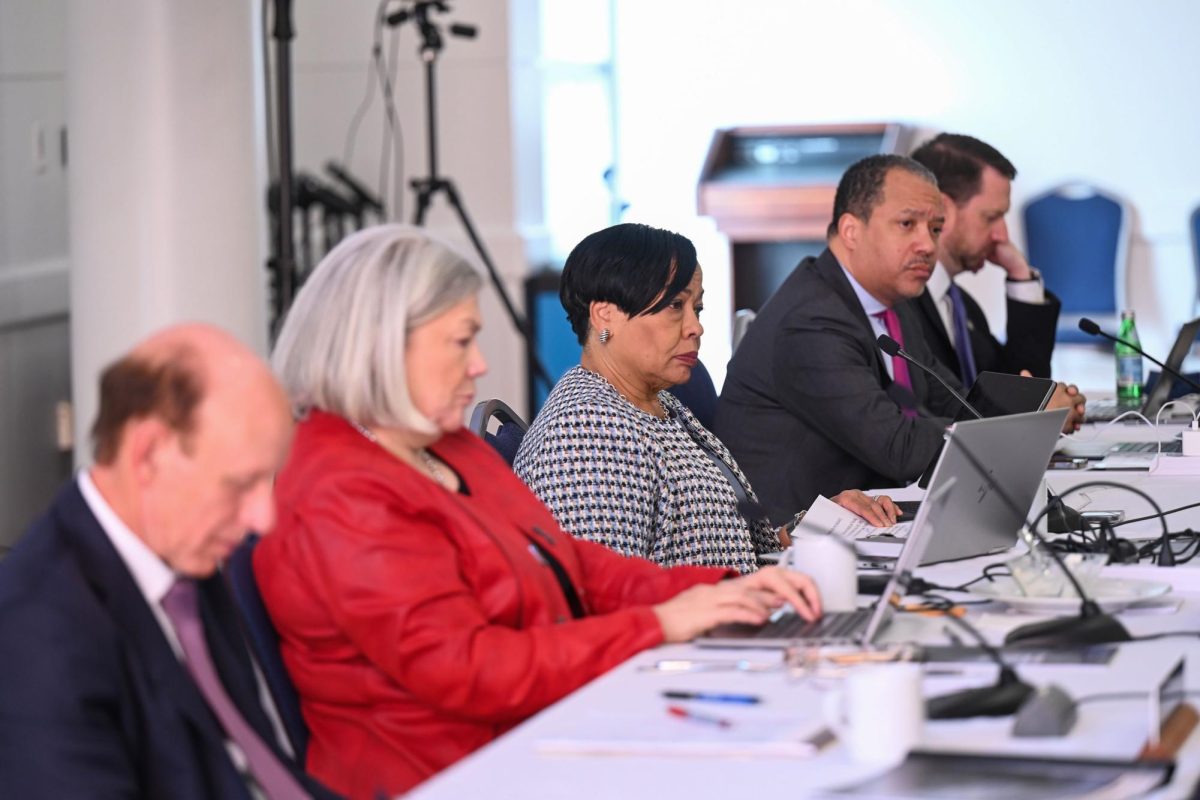Updated: Sept. 14, 2022 at 9:32 a.m.
Students, faculty, staff and alumni called for an increased commitment to diversity and sustainability and wider community involvement in major decisions from GW’s next president at a series of community forums that the Presidential Search Committee hosted last week.
Officials held seven forums last week – two each for faculty, staff and students and one for alumni – where attendees outlined their University culture and presidential concerns about a lack of resources for research, an inadequate role in the University’s shared governance policy and frustration with GW’s dependence on money from companies that focus on fossil fuel extraction. Officials said they will consider the feedback from the forums to create criteria and questions when interviewing and recruiting University presidential candidates over the coming months.
Faculty and staff attendees largely noted a lack of representation and resources within University shared governance and policy, while students said they wanted a president who would commit to sustainability and academic diversity and have a noticeable presence in campus programming like interim University President Mark Wrighton, who regularly attends GW athletic and community events.
Trustee Roslyn Brock and Faculty Senate Executive Committee Chair Jim Tielsch, the chair and vice chair of the search committee, presided over the forums. Ilene Nagel, John Simon and Charlie Kaler, consultants from Education Executives – the outside search firm that GW selected in June to help guide the search process – also helped moderate the forums.
“We are interested in those issues that you think are important for the search committee to consider and to include in the individuals who we will speak with who have interest in leading this University into its third century,” Brock said during the virtual staff community forum Friday.
Student forums: Sustainability and community engagement
Of the more than 50 students who attended the forums, a majority raised concerns about GW’s environmental impact and financial relationship with the energy industry. Officials said in July 2020 that GW would divest its endowment from companies that focus on fossil fuel extraction by 2025.
Bella Kumar, a sophomore studying political communications and American studies, said the next president should reform or sever ties to the Regulatory Studies Center, a research institute operated by GW that has received criticism for having a conservative and anti-regulatory political bias.
“Our futures are not promised,” she said. “We are facing an urgent and existential crisis, and this University and its presidents have consistently pushed our concerns aside in an effort to maintain the school’s bottom line.”
Alex Stangl, a senior studying political science and psychology, said in addition to limiting the amount of research funding GW accepts from the fossil fuel industry, officials should allocate more funding for students’ direct use, like expanding budgets for student organizations. Officials announced the University would give the Student Association the responsibility of funding student organizations, instead of jointly funding organizations last year.
“It feels like, at least to me, and I’m sure you can ask other students, that its finances first and how can we benefit the pockets of people that have the most money already, it doesn’t feel like it’s being stuck with students,” he said.
Faculty forums: Resources for research and advancement
More than 70 faculty members participated in this week’s forums, most of whom said GW doesn’t give enough resources toward faculty research or clearly communicate policies around research and professional development to professors.
Faculty senators expressed concerns last April that the fiscal year 2022 budget should allocate more funds for research as GW emerges from the pandemic instead of keeping extra budget funds as a surplus.
Ralph Steinhart, a professor of international law who also sits on the Presidential Search Committee, said faculty have voiced similar concerns about a lack of research funding at nearly every one of GW’s presidential searches since the presidency of Lloyd Elliott, GW’s 14th permanent president from 1965 to 1988.
“We are not simply trying to send an ‘F.U.’ message to our prior presidents,” he said. “We are trying to find somebody who rises above.”
Christine Pintz, a professor in the School of Nursing, said the University doesn’t supply enough support or guidance to professors who are trying to conduct academic research or pursue grants, even though the Faculty Senate issued recommendations on how to reform the system this past spring.
“I think that our aspiration is to be a really high-level research institution, but there’s no way that we can achieve that with the system that we have presently,” she said. “I’ve been at the University for almost 25 years and submitting grants and managing grants for many years, and it’s so frustrating to do this work.”
Staff forums: Having a seat at the table
In both staff forums, more than 80 participants said they felt underrepresented in University decisions, including on the Board of Trustee’s Presidential Search Committee, which has one staff representative – Vice Provost for Diversity, Equity and Community Engagement Caroline Laguerre-Brown – out of 17 positions.
Kim Fulmer said Laguerre-Brown is an upper-level administrator and has different interests from her and many of her colleagues.
“I don’t really feel that that person that is considered staff represents my interests because I make a much lower salary, and I am much lower in the hierarchy, and I’d really like to see someone who’s lower on the hierarchy also be on this committee,” she said.
Amy Cohen, the executive director of the Nashman Center for Civic Engagement and Public Service, said the next University president should form more connections with other D.C.-based institutions, like Cedar Hill Regional Medical Center, a GW-staffed hospital in Anacostia that will open in 2024, to provide opportunities for academic scholarship and diversity at GW.
“I hope that we will continue to expand some of the positive partnerships that we have been undertaking over the last 50 years,” she said.
Alumni forums: Playing to GW’s strengths
Many of the alumni who attended their forum said the University isn’t taking advantage of its strategic location within the District or its highly ranked institutions like the Elliott School of International Affairs.
David Karl, who earned a Bachelor of Arts degree from GW in international affairs in 1984, said many alumni were unhappy with LeBlanc’s presidency because they felt he moved away from investing in programs like the Elliott School.
Officials faced backlash for the controversial 20/30 plan – which called for a 20 percent cut in enrollment while upping the share of STEM majors by 30 percent.
“There was a lot of discontent toward the immediate past president,” he said. “The feeling was that he did not value the Elliott School, which in my view is a crown jewel.”
David Earl, who earned a Bachelor of Arts degree in political communication in 2008 and a Master of Arts degree in global communication in 2015, said the next University president should focus on strengthening the student body’s sense of community, whether by hosting more University programming with high-profile speakers or attending athletic games. He said the committee may want to consider more candidates who are not “traditional academics” and have experience in community engagement.
“I think GW alumni, at large, are really committed to seeing it be a school that is in the moment, that is in the new, that is in the now, and that’s kind of in the mix,” he said. “And I think that is where alumni get the most fired up.”
Caitlin Kitson, Erika Filter, Grace Chinowsky, Ianne Salvosa and Tara Suter contributed reporting.
This post has been updated to correct the following:
The Hatchet reported Stangl said GW should divest from the fossil fuel industry. Stangl said GW should stop receiving research funding from the fossil fuel industry. The Hatchet also reported that Karl said former University President Thomas LeBlanc invested in STEM-related programs instead of the Elliott School. Karl did not criticize LeBlanc’s focus on STEM-related programs. We regret these errors.


